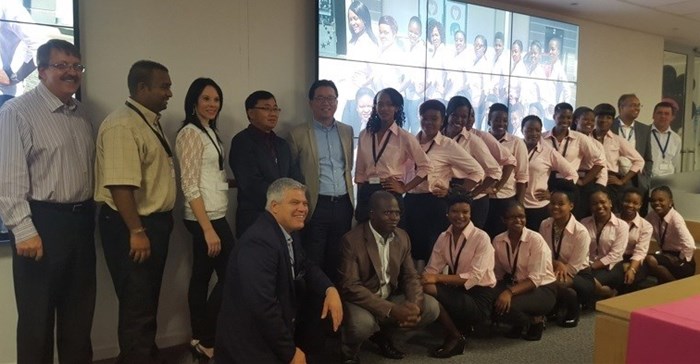
Top stories






More news


Marketing & Media
Ads are coming to AI. Does that really have to be such a bad thing?














The Samsung Women Technical Programme is an initiative which started in November 2015, when 20 female students from previously disadvantaged backgrounds were chosen from a group of some 200 at the Samsung Engineering Academy in Ekurhuleni. These young women had already undergone training on Samsung’s various products and appliances and were then selected for the first ever training programme specifically for hand held devices.
“They were trained on how to repair various mobile device models, how to conduct updates to software, as well as the different aspects around fixing hardware. The idea was to turn these young women into qualified cell phone technicians,” says Samsung’s director: SSA service, Richard Chetty.
“The 16 young ladies who graduated from this course are certified to work on Samsung cellphones and they have been placed at a number of our service centres, where they will undergo a year of practical work in order to gain necessary and valuable experience. Following a final assessment, they will be certified as technicians, which will open up a meaningful career path to them.”
Chetty adds that while similar training programmes have been established in the industry, there is also a tendency for the hosting company’s responsibility to end when the trainees start their careers. However, he indicates that Samsung believes in focusing on things for the longer term, which is why the organisation will remain closely involved in the future development and occupational paths of these graduates.
“Most importantly, these young ladies are merely the trailblazers of what we hope will become a flood of young female technical learners in South Africa. We are planning to have three intakes every year for women, although each intake will cover a different product focus area. For example, a course focusing on larger appliances will require the learners to have a valid driver’s licence. In this way, they will not only learn how to service the appliances, but will be trained and certified as in-home technicians,” he explains.
Chetty states that Samsung is considering the bigger picture with courses of this nature. They are designed to develop skills and create jobs and will even include training in aspects of entrepreneurship, so that future graduates have the opportunity to set up small businesses of their own.
“Samsung is committed to our responsibility toward our community and our goal of positively impacting on people’s lives. Our Samsung Women Technical Programme proves that job creation, skills development and women empowerment can be achieved. We want to encourage other corporate organisations to contribute to the economy and job creation by getting involved in similar schemes. Samsung is leading the way and we hope others will follow,” concludes Chetty.